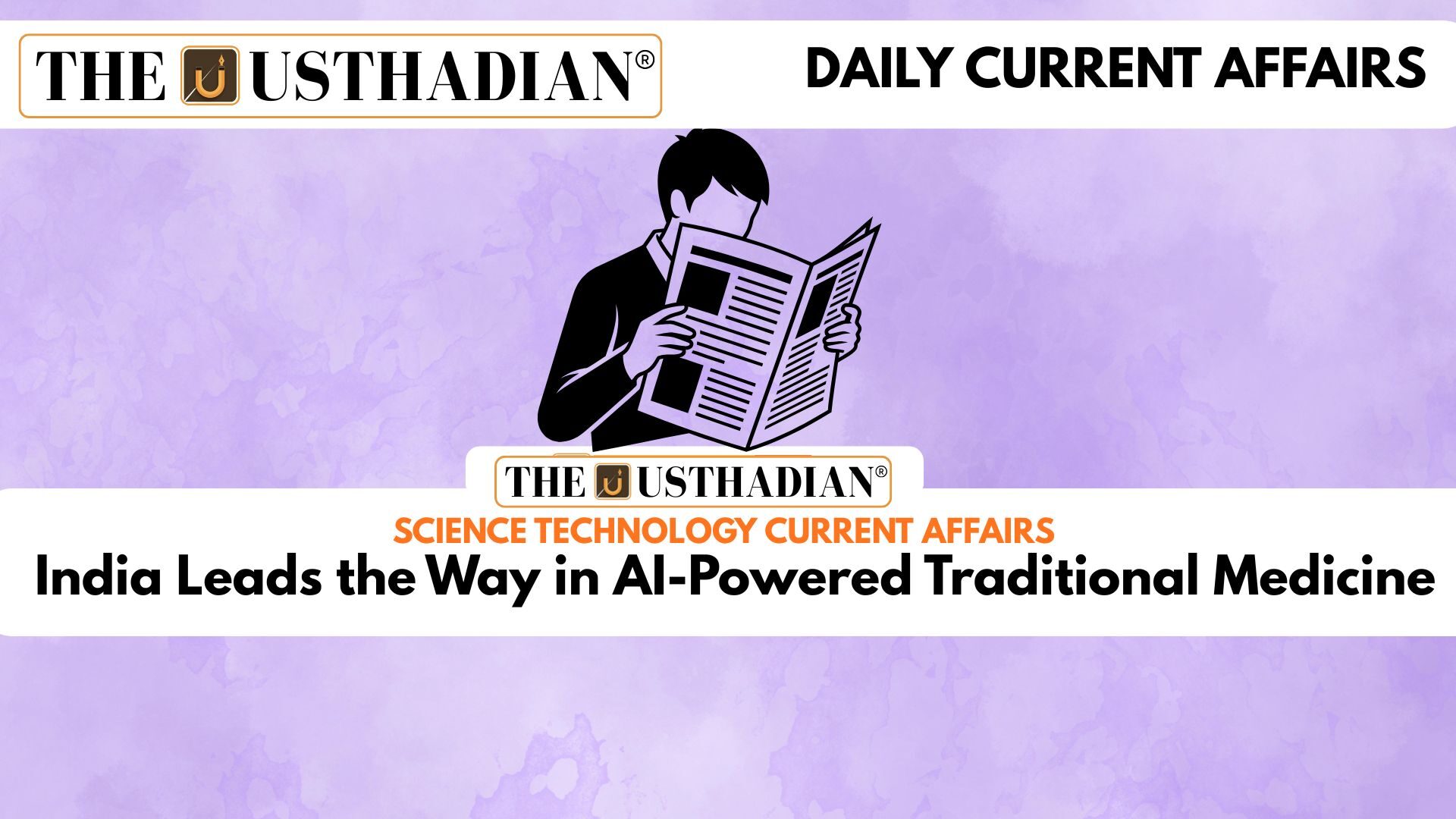WHO recognises India’s digital push in traditional healing
India Leads the Way in AI-Powered Traditional Medicine: India’s pioneering use of Artificial Intelligence (AI) in its Ayush systems—Ayurveda, Siddha, Unani, Sowa Rigpa, and Homoeopathy—has been globally recognised by the World Health Organization (WHO). WHO’s recent technical brief marks the first such global document mapping AI’s role in Traditional Medicine (TM).
The document stems from India’s initiative and was published under the Global Initiative on Artificial Intelligence for Health (GI-AI4H). This effort is co-led by WHO, the International Telecommunication Union (ITU), and the World Intellectual Property Organization (WIPO).
How India applies AI in Ayush systems
AI is reshaping how traditional diagnosis is performed in India. It merges classical TM techniques like pulse analysis, tongue diagnosis, and Prakriti assessment with modern tools such as machine learning and deep learning.
A major development is Ayurgenomics, which blends genomic science with Ayurvedic principles. AI enables identification of risk markers and offers personalized wellness solutions based on one’s Ayurvedic constitution.
AI is also aiding in decoding drug action. With the use of chemical sensors, researchers now analyze Ayurvedic components like Rasa (taste), Guna (quality), and Virya (potency) for clinical correlations.
Static GK fact: Ayurveda is one of the oldest healing sciences in the world, dating back over 3,000 years, with roots in the Vedic period.
Key challenges in merging AI with traditional systems
Despite rapid progress, India faces serious challenges in implementing AI in TM. Biopiracy—the exploitation of indigenous knowledge without consent—is a major risk.
Digital infrastructure limitations and low digital literacy, especially in rural areas, hinder AI access. There’s also a lack of standardised, large-scale datasets needed for reliable AI training.
Further, there’s tension between the need for local customization and the goal of international standardisation.
Indian platforms driving AI-based TM integration
India has created several platforms to make TM digitally accessible and AI-ready. The Traditional Knowledge Digital Library (TKDL) is a key archive of codified knowledge from systems like Ayurveda and Siddha.
The Ayush Grid, launched in 2018, is a national IT backbone for TM. It includes:
- AYUSH Health Management Information System (AHMIS)
- SAHI Portal for data standardisation
- NAMASTE Portal for service access
- Ayush Research Portal for academic access
- Ayush Sanjivani and Yoga Locator mobile apps
Static GK Tip: India is the only country to host a Ministry solely dedicated to traditional systems of medicine—Ministry of AYUSH, established in 2014.
Way forward for India and global AI-TM collaboration
India’s recognition by WHO signals a global shift in how emerging technologies can respect and revitalise indigenous systems. To maximise impact, there is a need for:
- Ethical frameworks
- Strong data protection laws
- Global cooperation
- Safeguarding of tribal and community rights
India’s leadership at the Global Partnership on AI (GPAI) Summit 2023 is an example of how it aims to bridge AI theory and practice, even in culturally rooted domains like TM.
Static Usthadian Current Affairs Table
India Leads the Way in AI-Powered Traditional Medicine:
| Topic | Detail |
| WHO Brief on AI in TM | First-ever global document mapping AI use in Traditional Medicine |
| India’s Proposal | Basis for WHO’s technical brief recognition |
| GI-AI4H | Global initiative by WHO, ITU, WIPO |
| Ayurgenomics | Integration of genomics and Ayurveda |
| Biopiracy Risk | Unauthorized use of traditional knowledge |
| Ayush Grid | Central IT platform for traditional medicine |
| TKDL | Digital archive of Indian traditional knowledge |
| AHMIS | Cloud-based TM health data system |
| SAHI Portal | Ayurveda data standardisation portal |
| GPAI Summit 2023 | India-hosted global meet on AI practices |








